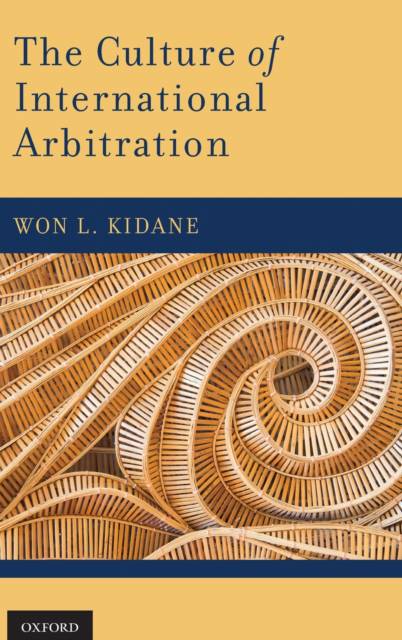
- Afhalen na 1 uur in een winkel met voorraad
- Gratis thuislevering in België vanaf € 30
- Ruim aanbod met 7 miljoen producten
- Afhalen na 1 uur in een winkel met voorraad
- Gratis thuislevering in België vanaf € 30
- Ruim aanbod met 7 miljoen producten
Zoeken
Omschrijving
Although international arbitration has emerged as a credible means of resolution of transnational disputes involving parties from diverse cultures, the effects of culture on the accuracy, efficiency, fairness, and legitimacy of international arbitration is a surprisingly neglected topic within the existing literature. The Culture of International Arbitration fills that gap by providing an in-depth study of the role of culture in modern day arbitral proceedings. It contains a detailed analysis of how cultural miscommunication affects the accuracy, efficiency, fairness, and legitimacy in both commercial and investment arbitration when the arbitrators and the parties, their counsel and witnesses come from diverse legal traditions and cultures. The book provides a comprehensive definition of culture, and methodically documents and examines the epistemology of determining facts in various legal traditions and how the mixing of traditions influences the outcome. By so doing, the book demonstrates the acute need for increasing cultural diversity among arbitrators and counsel while securing appropriate levels of cultural competence. To provide an accurate picture, Kidane conducted interviews with leading international jurists from diverse legal traditions with first-hand experience of the complicating effects of culture in legal proceedings. Given the insights and information on the rules and expectations of the various legal traditions and their convergence in modern day international arbitration practice, this book challenges assumptions and can offer a unique and useful perspective to all practitioners, academics, policy makers, students of international arbitration.
Alleen bij Standaard Boekhandel
+ 531 punten op je klantenkaart van Standaard Boekhandel
Beoordelingen
We publiceren alleen reviews die voldoen aan de voorwaarden voor reviews. Bekijk onze voorwaarden voor reviews.












